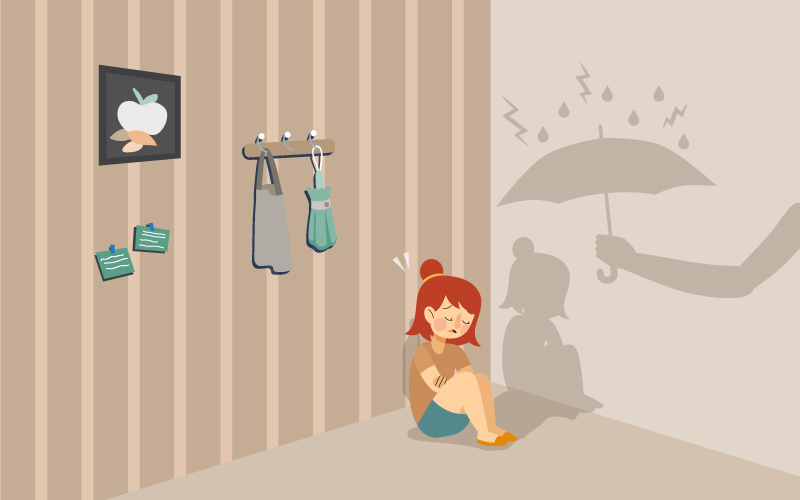Childhood abuse casts a long shadow over the lives of those affected. The impact of such trauma can resonate well into adulthood, influencing relationships, self-esteem, and overall mental health. As a life coach, I’ve seen firsthand how individuals struggle with the scars of their past. However, with the right support and strategies, it is possible to heal and lead a fulfilling life.
Understanding the Impact of Childhood Abuse
Emotional and Psychological Effects
Childhood abuse, whether physical, emotional, or sexual, leaves deep emotional and psychological scars.
- Low self-esteem: Constant criticism or neglect in childhood can lead to feelings of worthlessness.
- Trust issues: Betrayal by a caregiver or loved one can make it difficult to trust others.
- Anxiety and depression: Persistent feelings of fear, sadness, and hopelessness are common.
- Relationship difficulties: Forming healthy relationships can be challenging due to unresolved trauma.
Behavioral Patterns
Survivors of childhood abuse often develop coping mechanisms that, while protective in childhood, become maladaptive in adulthood.
- Avoidance: Steering clear of situations that trigger painful memories.
- People-pleasing: Seeking validation and approval from others at the expense of personal needs.
- Perfectionism: Striving for flawlessness to avoid criticism or punishment.
- Substance abuse: Using alcohol or drugs to numb emotional pain.
Steps to Healing
Healing from childhood abuse is a journey that requires courage, patience, and support.
Acknowledge the Abuse
The first step towards healing is acknowledging the abuse. Denial or minimization of past trauma only prolongs the pain. Recognize that what happened was not your fault and that your feelings are valid.
Seek Professional Help
Therapy is a crucial component of healing from childhood abuse. A trained therapist can help you process your trauma, understand its impact, and develop healthy coping mechanisms.
- Cognitive Behavioral Therapy (CBT): Helps in identifying and changing negative thought patterns.
- Eye Movement Desensitization and Reprocessing (EMDR): Effective in processing traumatic memories.
- Somatic Experiencing: Focuses on releasing trauma stored in the body.
Build a Support System
Surround yourself with supportive and understanding individuals. This can include friends, family, support groups, or a life coach. Sharing your experiences with others who have faced similar challenges can be incredibly validating and comforting.
Practice Self-Compassion
Many survivors of childhood abuse struggle with self-criticism and shame. Practicing self-compassion involves treating yourself with the same kindness and understanding that you would offer to a friend.
- Positive self-talk: Replace negative thoughts with affirmations.
- Self-care routines: Engage in activities that nurture your well-being, such as exercise, meditation, or hobbies.
Set Boundaries
Learning to set healthy boundaries is essential for protecting your emotional well-being. This means knowing your limits and communicating them clearly to others. It also involves recognizing when a relationship or situation is harmful and taking steps to remove yourself from it.
Explore and Express Emotions
Allow yourself to feel and express your emotions in a healthy way. Journaling, art, and music can be powerful outlets for processing emotions. It’s important to acknowledge and validate your feelings rather than suppressing them.
Reframe Negative Beliefs
Childhood abuse often instills negative beliefs about oneself and the world. Reframing involves challenging these beliefs and replacing them with more positive and realistic ones. For example, instead of believing “I am unlovable,” you might reframe it to “I am worthy of love and respect.”
Develop Healthy Relationships
Learning to build and maintain healthy relationships is a key part of healing.
- Effective communication: Expressing your needs and feelings openly and honestly.
- Mutual respect: Ensuring that both you and your partner respect each other’s boundaries and individuality.
- Trust-building: Taking gradual steps to build trust, understanding that it may take time.
Focus on Personal Growth
Embrace opportunities for personal growth and self-discovery. This could involve pursuing new interests, furthering your education, or developing new skills. Personal growth can help you reclaim a sense of agency and purpose.
Practice Mindfulness
Mindfulness involves being present in the moment without judgment. It can help you become more aware of your thoughts and feelings, and respond to them in a healthy way. Techniques such as meditation, deep breathing exercises, and yoga can promote mindfulness.
The Role of a Life Coach
A life coach can be a valuable ally in your healing journey. Here’s how I can support you!
Goal Setting
I can help you set and achieve personal goals, whether they relate to your career, relationships, or personal growth. Setting goals provides a sense of direction and purpose.
Accountability
Having someone to hold you accountable can be motivating. I can help you stay on track with your healing process and personal development goals.
Empowerment
Life coaching focuses on empowering you to make positive changes in your life. This includes helping you recognize your strengths, build self-confidence, and develop a positive mindset.
Emotional Support
While not a replacement for therapy, I can provide emotional support and encouragement and help you navigate challenges and celebrate your successes along the way.
Final Thoughts
Dealing with childhood abuse as an adult is a complex and challenging journey, but it is also a journey of resilience and strength. With the right support, tools, and strategies, it is possible to heal and lead a fulfilling life. Remember, healing is not about forgetting the past, but about reclaiming your future. As a life coach, my goal is to support you in this journey, helping you transform your pain into empowerment and your trauma into triumph.

Leave a Reply
You must be logged in to post a comment.